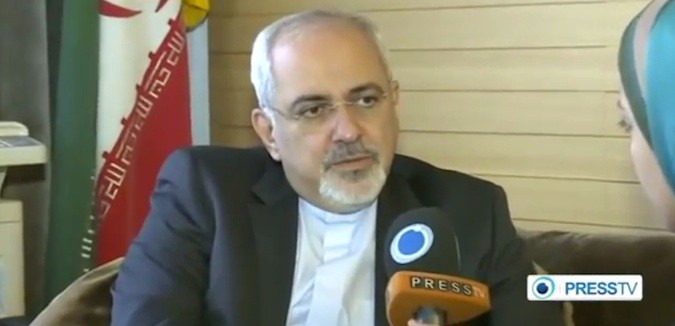Agence France-Presse (AFP) on Thursday conveyed statements from Iran’s Foreign Ministry blasting the P5+1 global powers for making “excessive demands” in the face of “rational proposals” being put forth by Tehran:
“Iran is ready for a resolution and made rational proposals,” the official IRNA news agency quoted foreign minister Mohammad Javad Zarif as saying.
“But the excessive demands of the other party could prevent an agreement,” he added. “At that time the world will know who was responsible for the deadlock in the nuclear negotiations.”
The phrase has become something of a talking point for the Iranians – they used it a few days ago – and the remarks are in line with analysis that sees them as maneuvering ahead of a ‘blame game’ or ‘frame game’ that would occur after negotiations fail.
Both the Los Angeles Times and Emily Landau – the chief of the arms control program at the Institute for National Security Studies (INSS) – have in recent days contextualized remarks by Iranian officials as designed to convince the international community that their stances were reasonable, and that talks faltered over U.S. demands:
Iran has long been preparing itself for the possibility of a breakdown, a scenario it will manipulate and present as the result of US intransigence and failure to act in good faith. Such preparation finds expression in the stark disconnect between Iran’s uncompromising positions on the nuclear issues, and its parallel statements that castigate the US while professing its readiness to cooperate and move forward in a positive mode if only the P5+1 would adopt reasonable positions. This is a well-known Iranian tactic, used also during the Ahmadinejad years. The message has always been that if only the other side would be more ‘reasonable’ (namely, accept all of Iran’s arguments and positions) a deal could be achieved in short order.
Other observers have further suggested that the Iranians may be exaggerating the gaps that remain regarding uranium capacity and plutonium production, and that in fact the parties will be able to bridge those gaps by the Joint Plan of Action’s July 20 deadline. Under this scenario, the actual remaining divisions revolve around Iran’s obligations to roll back its ballistic missile program and to come clean regarding so-called “possible military dimensions” (PMDs) of its atomic program.
Tehran has outright refused to discuss ballistic missiles in the context of ongoing talks, and has sought to delay negotiations over PMDs until the very end of negotiations, a move widely seen as a gambit under which the Iranians would negotiate everything else and then functionally dare Western negotiators to scuttle a deal due to PMD-related intransigence.
Loud public declarations that the parties can’t agree on uranium and plutonium issues are, under these theories, aimed at setting up eventual terms as bitterly given Iranian concessions, thereby freeing up Western negotiators to fold on ballistic missile and PMD conditions.
The New York Times reported yesterday that Obama administration officials – after having for months assured lawmakers and journalists that Iran would be forced to meet its PMD-related obligations – “seem to be steering away from forcing a full historical accounting from the Iranians before any accord is signed, arguing that excavating the past is less important than assuring Iran does not have the raw material to make a weapon.”
A broad range of analysts have sought to explain that in fact PMD issues are not so much about ‘excavating the past’ as about establishing the actual scope of the Iranian atomic program, a vital prerequisite to verifying that the Iranians have halted their clandestine activities per any agreement.
[Photo: PressTV Videos / YouTube]




